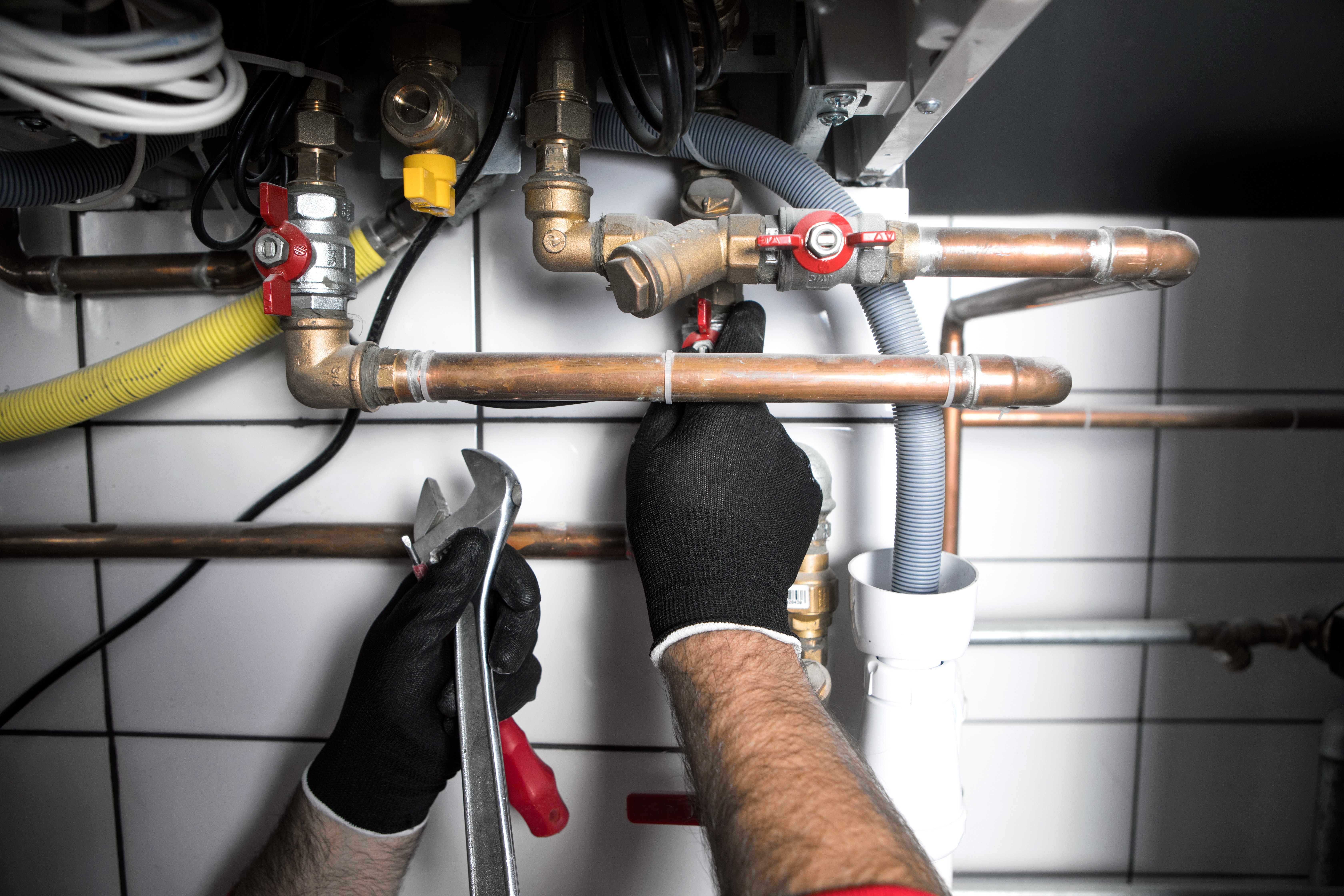Updated December 2025
The difference between residential and commercial plumbing is always a hot topic for debate—after all, pipes are pipes, right? Well, not exactly.
While it's true that commercial and residential work do share certain attributes, there are key elements that set these work environments apart for plumbers.
In this post, we look at some of those elements, as well as the distinct challenges plumbers face in residential versus commercial settings. Here are six differences between these two plumber career paths.
1. Usage Requirements
Think about your average family home. When laying out and installing plumbing components, or conducting repairs, the plumber must only consider the needs of a handful of people.
On the other hand, with large commercial buildings (such as high-rise office buildings), demands on plumbing systems are far greater. They take more use and abuse than a single-family home, require more pipes, outlets, and increased water pressure—and must be maintained for potentially hundreds of users each day.
2. SYSTEM SIZE AND COMPLEXITY
Residential spaces tend to have a simple plumbing layout. The average Canadian home is roughly 1,800 square feet and might be spread over one or two floors. So if there's a leak, the system is small enough that the plumber has a limited number of places to check.
By contrast, commercial buildings are commonly 50,000 square feet or more. They can have dozens of floors and miles of interconnected pipes. In a 20-storey building, a leak that's discovered on the 15th floor might actually have originated on the 19th floor. It can take a bit more detective work—and coordination with multiple businesses on different floors—to find the source of a problem.
3. Code Requirements
Residential properties are all subject to the same building codes. But there are special requirements for commercial structures, from factories and industrial plants to hospitals and restaurants.
For instance, commercial kitchens are required to have grease traps to keep fats, oils, and grease from clogging pipes and causing sewage backups. And hospitals are required to have direct connections to at least two public water mains to help ensure a reliable water supply for critical functions.
Plumbers must be aware of the different code requirements for the different types of structures they work on.
4. Types of Plumbing Equipment
Because commercial/industrial buildings have different plumbing demands than homes, the types of machines and equipment plumbers work on varies between these two settings.
Of course, one of the biggest differences is the size of the pipes. Residential homes typically use three-quarter-inch supply lines and three- to four-inch sewer lines. But in commercial buildings with dozens of toilets, sinks, and other fixtures that need water, plumbers could be dealing with four-inch supply lines and 10- or even 12-inch sewer lines.
In addition, when residential plumbers visit a home, they are likely called in to work on a water heater, a backed-up toilet or drain, a home appliance, or other smaller-scale plumbing issue.
Conversely, plumbers in large-scale buildings or factories will likely work with large boilers, site sewer lines, lift stations, and industrial-grade fixtures. They may also need to install more demanding and complex appliances in commercial settings.
So while the basic fundamentals of plumbing are the same in both work environments, plumbers must apply this knowledge in different ways, often using different materials, according to the size and function of the building.
5. Work HOURS
Residential plumbers are often called in on weekends or evenings to deal with emergencies—like a burst pipe or overflowing toilet. If they work for a company, they might be on call certain nights and weekends to respond to these issues (with an extra fee added for work done outside of peak hours).
Otherwise, residential plumbers keep weekday hours that more closely resemble the 9-to-5 norm. Commercial or industrial plumbers, on the other hand, must often complete jobs during off hours, when employees or the public are away from the work site.
For example, in-depth plumbing work on an office space or shopping mall usually takes place at night, when the space is not in use. To minimize public impact and inconvenience, commercial plumbers must often adjust to irregular work schedules.
6. The Personal Side of the Business
Many residential plumbers highlight personal interactions with friendly homeowners as a major advantage to residential plumbing work. There's appreciation for a job well done, chats about new plumbing products, and mini-tutorials on routine maintenance.
The one-to-one exchanges during house calls add a sense of community connection plumbers don't usually associate with large-scale, less personal industrial and commercial projects.
On the other hand, some plumbers prefer the anonymity of commercial work, where you typically deal with other contractors and building professionals rather than with customers.
Thinking About a Career in Plumbing?
Ideally, experienced plumbers can handle repairs and maintenance in both residential and commercial/industrial settings. However, it is more common for professionals to choose one path or the other, and develop an expertise according to building type, system complexity, and usage demands.
Herzing College's plumbing program is designed to give you the skills employers are looking for in new apprentices. Students learn how to read blueprints, install and repair piping and fixtures, and follow applicable codes. The program is just 24 weeks long and safety certifications are included.
Still have questions? Your next step is to speak with admissions. An admissions advisor will answer your questions about the plumbing program, costs, financial aid, how to enrol, and more.
Chat live with an advisor right now. Or click below to explore the program in more detail. We're here to help!






